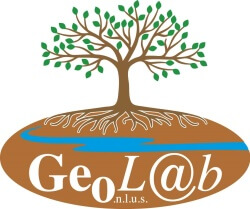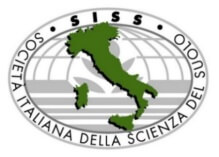TOXICOLOGICAL EFFECTS OF ENGINEERED NANOPARTICLES ON EARTHWORMS (LUMBRICUS RUBELLUS) IN SHORT EXPOSURE
DOI:
https://doi.org/10.6092/issn.2281-4485/3750Keywords:
earthworms, nanoparticles, toxicity, soilAbstract
Nanoparticles (NPs) types diffused into the environment are increasing, giving potential damages to terrestrial ecosystems. In this work we investigated the nanoparticles toxicity as pure metal and two oxides (Co, SnO2 and CeO2) on earthworm survival (Lumbricus rubellus). A concentration of 5000 mg kg-1 dry soil of each NP was compared to the chronic dose of 10 mg kg-1. The interaction between NPs and soil microbial biomass was also studied in 7 days length incubation. No mortality was observed at the end of the experiment, but high concentration of Co was found in the 5000 kg-1 dry soil treated. Despite low solubility of all NPs (solid-liquid partition coefficient > 2.8 log l kg-1) pure metal NPs were (Co) more soluble than the metal oxides nanoparticles (SnO2 and CeO2).
References
BADALUCCO L., GELSOMINO A., DELL'ORCO S., GREGO S., NANNIPIERI P., 1992. Biochemical characterization of soil organic compounds extracted by 0.5 M K2SO4 before and after chloroform fumigation. Soil Biology and Biochemistry, 24, 569–578.
BLASER P. , ZIMMERMANN S., LUSTER J., SHOTYK W., 2000. Critical examination of trace element enrichments and depletions in soils: As, Cr, Cu, Ni, Pb, and Zn in Swiss forest soils. Science of the Total Environment, 249, 257-280.
BROOKES P.C., LANDMAN A., PRUDEN G., JENKINSON D.S., 1985. Chloroform fumigation and the release of soil nitrogen: a rapid direct extraction method for measuring microbial biomass nitrogen in soil. Soil Biology & Biochemistry, 17, 837-842.
DILLY O., MUNCH J.C., 1998. Ratios between estimates of microbial biomass content and microbial activity in soils. Biology and fertility of Soils, 27, 374-379.
DINESH R., ANANDARAJ M., SRINIVASAN V., HAMZA S., 2012. Engineered nanoparticles in the soil and their potential implications to microbial activity. Geoderma, 173–174, 19–27.
EDWARDS C.A. and BOHLEN P.J., 1996. Biology and Ecology of Earthworms. Springer.
EL-TEMSAH Y.S., JONER E.J., 2012. Ecotoxicological effects on earthworms of fresh and aged nano-sized zero-valent iron (nZVI) in soil. Chemosphere, 89, 76-82.
HU C.W., LI M., CUI Y.B., LI D.S., CHEN J., YANG L.Y., 2010. Toxicological effects of TiO2 and ZnO nanoparticles in soil on earthworm Eisenia fetida. Soil Biology and Biochemistry, 42, 586-59.
ISERMEYER H., 1952. Eine eifache Mthode zur Bestimmung der Bodenatmung und der Karbonate im Boden. Zeitschrift für Pflanzenernährung und Bodenkunde, 56, 26–38.
JENKINSON D.S., BROOKES P.C., POWLSON D.S., 2004. Measuring soil microbial biomass. Soil Biology & Biochemistry, 36, 5–7.
JOERGENSEN R.G., MULLER T., 1996. The fumigation-extraction method to estimate soil microbial biomass: calibration of the kEN value. Soil Biology & Biochemistry, 28, 33-37.
KHAN K.S., HEINZE S., JOERGENSEN R.G., 2009. Simultaneous measurements of S. macronutrients. and heavy metals in the soil microbial biomass with CHCl3 fumigation and NH4NO3 extraction. Soil Biology & Biochemistry, 41, 309-314.
KLAINE S.J., ALVAREZ P.J.J., BATLEY G.E., FERNANDES T.F., HANDY R.D., LYON D.Y., MAHENDRA S., MCLAUGHLIN M.J., LEAD J.R., 2008. Nanomaterials in the environment: Behavior, fate, bioavailability and effects. Environmental Toxicology Chemistry, 27, 1825–1851.
KUZMA J. and VERHAGE P., 2006. Nanotechnology in Agriculture and Food Production: Anticipated Applications. Project on Emerging Nanotechnologies and The Consortium on Law, Values and Health and Life Sciences. Centre for Science, Technology and Public Policy (CSTPP). September 2006. At: http://www.nanotechproject.org/50. Accessed on October 21, 2007.
MA W.C., 2005. Critical body residues (CBRs) for ecotoxicological soil quality assessment: copper in earthworms. Soil Biology & Biochemistry, 37, 561–568.
MAYNARD A.D. 2006. Nanotechnology: Assessing the risks. Nano Today, 1(2), 22–33.
NOWACK B. and BUCHELI T.D., 2007. Occurrence, behavior and effects of nanoparticles in the environment. Environmental Pollution, 150, 5-22.
OECD, 2010. GUIDELINES FOR THE TESTING OF CHEMICALS-Bioaccumulation in Terrestrial Oligochaetes, 2010.
OBERDORSTER G., OBERDORSTER E., OBERDORSTER J., 2005. Nanotoxicology: an emerging discipline evolving from studies of ultrafine particles. Environmental Health Perspective, 113, 823–839
TRIERWEILER J.F. and LINDSAY W.L., 1969. EDTA-ammonium carbonate soil test for zinc. Soil Science Society of America Journal, 33, 49-53.
TSAO T.M, CHEN M.Y., WANG M.K., 2011. Origin, sepration and identification of environmental nanoparticles: a review. Journal of Environmental Monitoring, 13, 1156-1163.
UNRINE J.M., HUNYADI S.E., TSYUSKP O.V., RAO W., SHOULTS-WILSON W.A., BERTSCH P.M., 2010a. Evidence for bioavailability of Au nanoparticles from soil and biodistribution within earthworms (Eisenia fetida). Environmental Science & Technology, 44, 8308–8313.
UNRINE J.M., HUNYADI S.E., TSYUSKP O.V., RAO W., SHOULTS-WILSON W.A., BERTSCH P.M., 2010b. Effects of particle size on chemical speciation and bioavailability of copper to earthworms (Eisenia fetida) exposed to copper nanoparticles. Journal of Environmental Quality, 39, 1942–1953.
VANCE E.D., BROOKES P.C., JENKINSON D.S., 1987. An extraction method for measuring soil microbial biomass C. Soil Biology and Biochemistry, 19, 703–707.
VITTORI ANTISARI L., CARBONE S:, FABRIZI A., GATTI A., VIANELLO G: (2011) Response of soil microbial biomass to CeO2 nanoparticles. EQA 7:135-150.
Downloads
Published
How to Cite
Issue
Section
License
Copyright (c) 2012 Livia Vittori Antisari, Serena Carbone, Antonietta Gatti, Alberto Fabrizi, Gilmo Vianello
Copyrights and publishing rights of all the texts on this journal belong to the respective authors without restrictions.
Articles published since 2020 are licensed under a Creative Commons Attribution 4.0 International License:
Previous articles are licensed under a Creative Commons Attribution-NonCommercial 3.0 Unported License:











